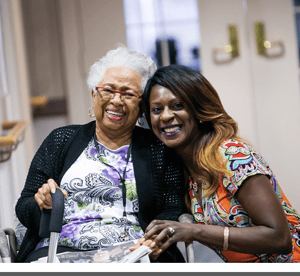Are you struggling with one of the most prevalent diseases our country is facing? 25.2% of  Americans age 65 and older live with diabetes. Whether you have been recently diagnosed or have been fighting the disease for some time, there are plenty of options on how you can live a perfectly normal life after your diagnosis. Maintaining a healthy diet and exercising are important in combating the serious effects diabetes can potentially have.
Americans age 65 and older live with diabetes. Whether you have been recently diagnosed or have been fighting the disease for some time, there are plenty of options on how you can live a perfectly normal life after your diagnosis. Maintaining a healthy diet and exercising are important in combating the serious effects diabetes can potentially have.
Adults with diabetes are nearly twice as likely to die from heart disease or stroke as people without diabetes. Over time high blood glucose from diabetes can damage your blood vessels and the nerves that control your heart which is why it’s important to learn how to manage the disease. The National Institute of Diabetes and Digestive and Kidney Diseases recommends taking these steps in order to lower your chances of having heart disease or a stroke:
- Stop smoking or using other tobacco products
- Manage your A1C, blood pressure and cholesterol levels
- Develop or maintain healthy lifestyle habits – be more physically active and learn ways to manage stress
- Take medicines as prescribed by your doctor
Additionally, there are some other steps you can take in order to make managing your diabetes easier.
Food- When you’re managing diabetes, your eating plan is a powerful tool. Feeling your best is linked to the foods you eat so start working on a plan for yourself. Share your nutritional challenges with those around you, they may be going through the same thing or have tricks and tips they can share. Don’t let how you manage your diabetes isolate you, share your feelings, talk about your emotions and chances are you’ll find someone who can relate.
Exercise- If exercising isn’t something you enjoy; it can be tough to implement into your daily routine. Work on finding ways to get active that are fun for you, walk around Collington’s beautiful campus or sign up for a fitness class. It doesn’t matter what you do as long as you get started. When you’re active, your cells become more sensitive to insulin, so any little change will make a difference.
Community- Continue to share your experiences and emotions with those around you and find or build a community of others who are working to manage their diabetes as well. Having a support system will help to motivate you to stay on track.
By focusing on food and exercise, you can lessen your risk of developing complications from diabetes later in life. Come up with a plan, talk with others in your community and take control of your diabetes.





